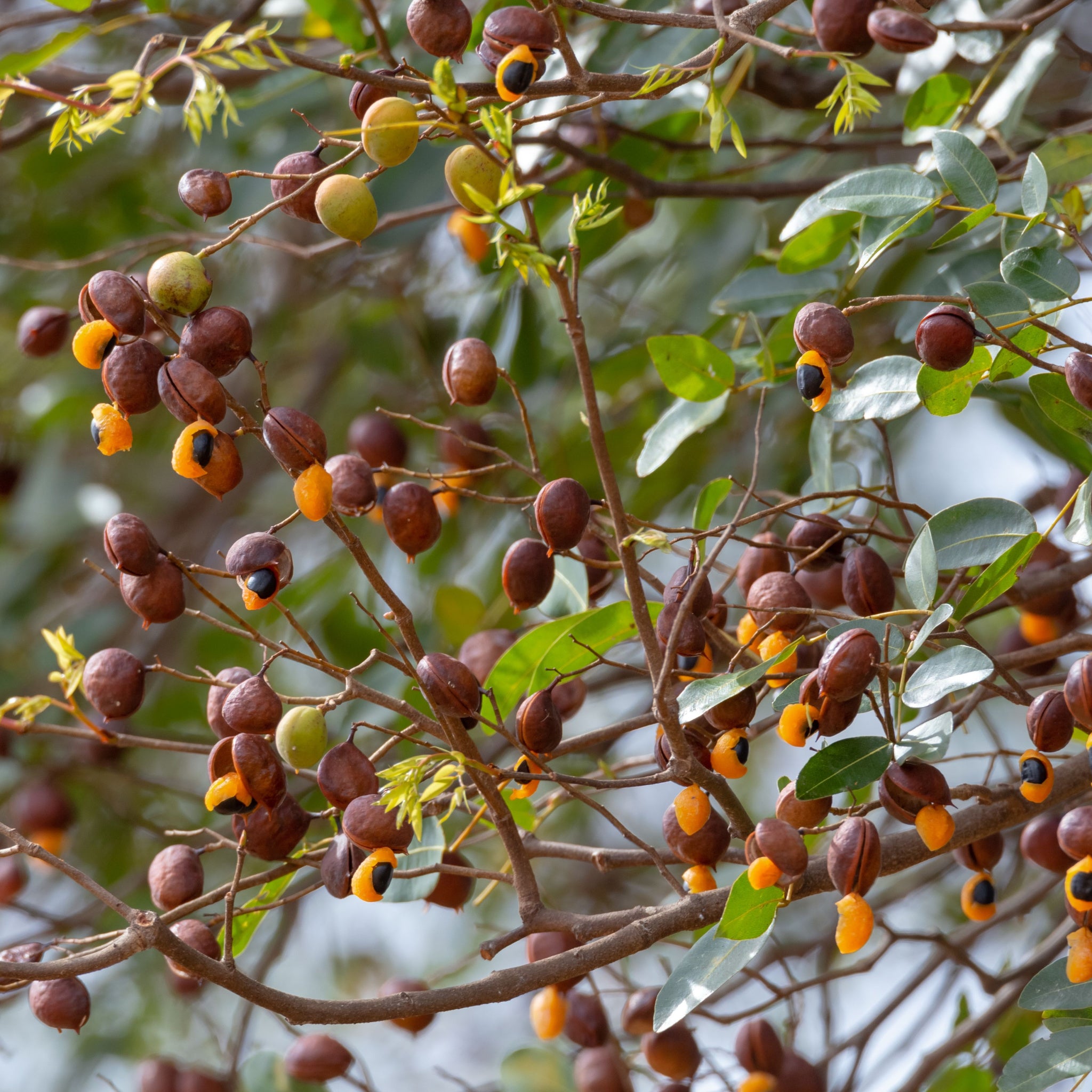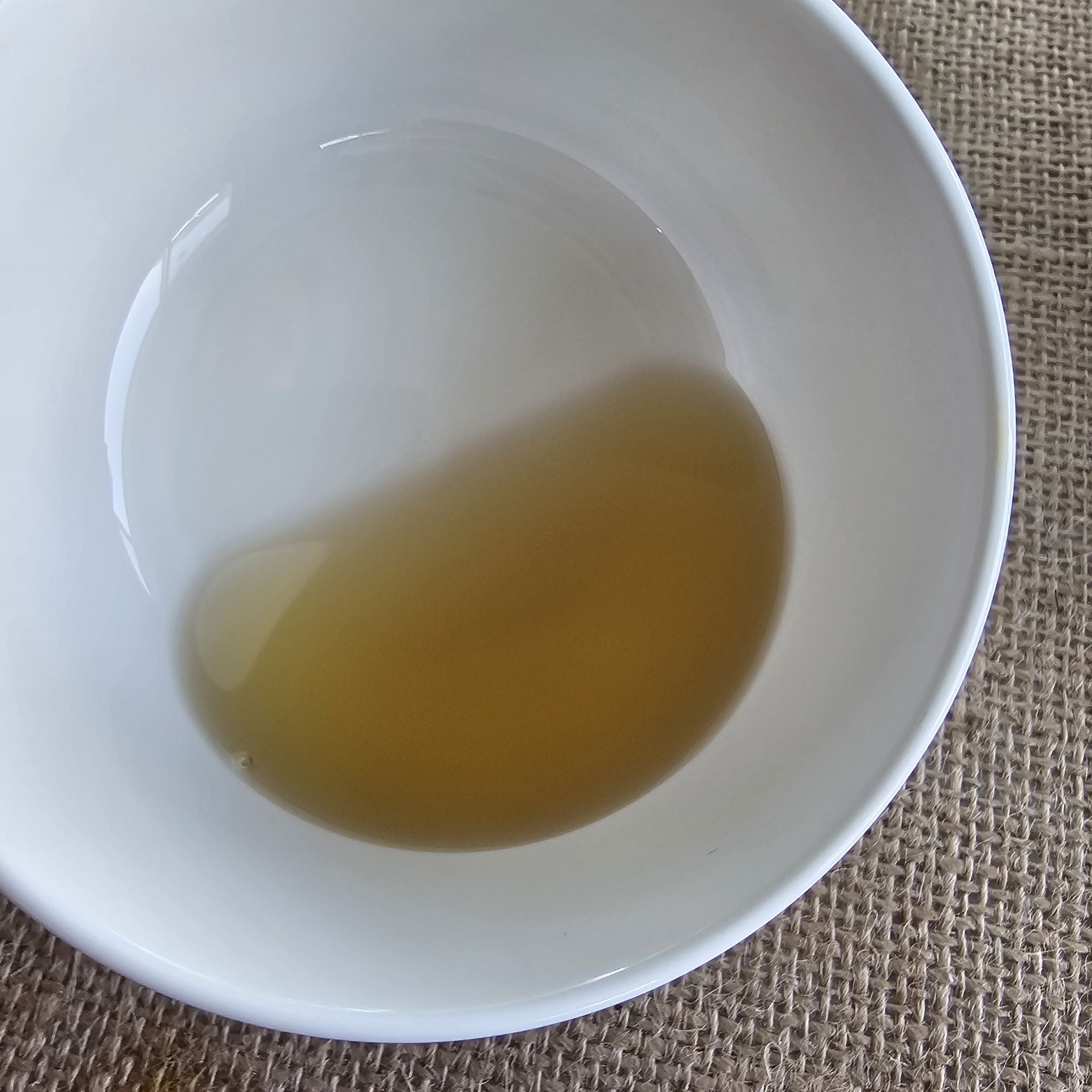Copaiba resin is a natural substance extracted from the trunk of trees belonging to the Copaifera genus, primarily found in the Amazon rainforest and other parts of South America. It’s an oleoresin, meaning it’s a mixture of resin and essential oils, and has been used for centuries by indigenous peoples for its medicinal and therapeutic properties.
The resin is typically harvested by tapping or drilling into the tree, much like how maple syrup is collected, allowing the sticky, aromatic substance to flow out. It ranges in color from pale yellow to dark brown and has a woody, slightly balsamic scent. Chemically, copaiba resin is rich in terpenes, particularly beta-caryophyllene, which is known for its anti-inflammatory, antimicrobial, and analgesic (pain-relieving) effects.
In traditional medicine, it’s been used to treat a variety of ailments—everything from skin conditions like wounds, rashes, and psoriasis to internal issues like inflammation, infections, and respiratory problems. Modern interest in copaiba resin has grown due to its potential as a natural remedy, often sold as an essential oil, balm, or supplement. Some studies suggest it may help with pain relief, wound healing, and even anxiety, though scientific research is still catching up to its traditional uses. The Copaiba we carry is the pure resin oil (not the essential oil.)
Copaiba resin is sometimes used in cosmetics and perfumes due to its fragrance and binding properties.
Copaiba resin has a long history of medicinal use, especially among indigenous communities in South America, and its applications have gained attention in natural medicine circles today. Its effects are largely attributed to its high content of terpenes, particularly beta-caryophyllene, which interacts with the body’s endocannabinoid system (specifically CB2 receptors) to produce anti-inflammatory, analgesic, and antimicrobial effects. Below are some of its key medicinal uses, based on traditional practices and emerging research:
Anti-Inflammatory Properties
- Use: Copaiba is widely used to reduce inflammation, both internally and externally.
- How: Applied topically as a balm or oil (often diluted with a carrier oil). It is used for conditions like arthritis, joint pain, and muscle soreness. Taken internally (e.g., in capsule form or as a few drops under medical guidance), it may help with systemic inflammation, such as in the gut or respiratory system.
- Research: Studies suggest beta-caryophyllene has potent anti-inflammatory effects, comparable to some non-steroidal anti-inflammatory drugs (NSAIDs), but with fewer side effects.
Pain Relief (Analgesic)
- Use: It’s applied to alleviate pain from injuries, chronic conditions, or headaches.
- How: Rubbed onto affected areas or diffused as an essential oil for mild pain relief. Traditional healers might combine it with other herbs for stronger effects.
- Research: The activation of CB2 receptors by beta-caryophyllene may reduce pain perception, supported by animal studies and anecdotal reports.
Wound Healing and Skin Conditions
- Use: Copaiba is a go-to for cuts, burns, insect bites, eczema, psoriasis, and acne.
- How: Applied directly to the skin, it promotes healing, reduces scarring, and soothes irritation. Its antimicrobial properties help prevent infection in open wounds.
- Research: Studies shows it has antibacterial and antifungal effects against pathogens like Staphylococcus aureus, and its anti-inflammatory action calms irritated skin.
Antimicrobial and Antifungal Effects
- Use: Treats infections, including skin infections, urinary tract infections (UTIs), and even oral health issues like gingivitis.
- How: Used topically for skin infections or as a gargle (diluted) for oral care.
- Research: Lab studies confirm activity against bacteria, fungi, and even some parasites, making it a natural antiseptic.
Respiratory Support
- Use: Helps with conditions like bronchitis, sinusitis, and coughs.
- How: Inhaled via steam or a diffuser as an essential oil, or taken internally in minute doses to loosen mucus and ease breathing.
- Research: Its expectorant and anti-inflammatory properties are credited here, though clinical data is limited—mostly backed by traditional use.
Digestive Health
- Use: Relieves stomach ulcers, indigestion, and gastrointestinal inflammation.
- How: Small doses (a few drops in water or capsules) are ingested to soothe the stomach lining and reduce discomfort.
- Research: Animal studies suggest copaiba can protect the gastric mucosa and reduce ulcer severity, likely due to its anti-inflammatory and antioxidant effects.
Anxiety and Stress Relief
- Use: Used to calm the mind and reduce anxiety.
- How: Diffused as an essential oil or applied to pulse points (like wrists or temples) for aromatherapy benefits.
- Research: Beta-caryophyllene’s interaction with CB2 receptors may influence mood, with some rodent studies showing anxiolytic (anxiety-reducing) effects.
Potential Anticancer Properties
- Use: Explored as a complementary treatment for cancer.
- How: Mostly experimental—used in lab studies rather than widespread practice.
- Research: Preliminary research indicates copaiba’s compounds may inhibit tumor growth and induce cancer cell death (apoptosis) in certain types (e.g., breast and colon cancer), but this is far from clinically proven.
Precautions
- Side Effects: Rare, but high doses can cause stomach upset, rash, or allergic reactions.
- Pregnancy: Avoided due to insufficient safety data.
- Quality: Adulteration is common in commercial products, so pure, sustainably sourced copaiba is key.
Fatty Acid Profile for Copaifera officinalis (Copaiba) resin oil







